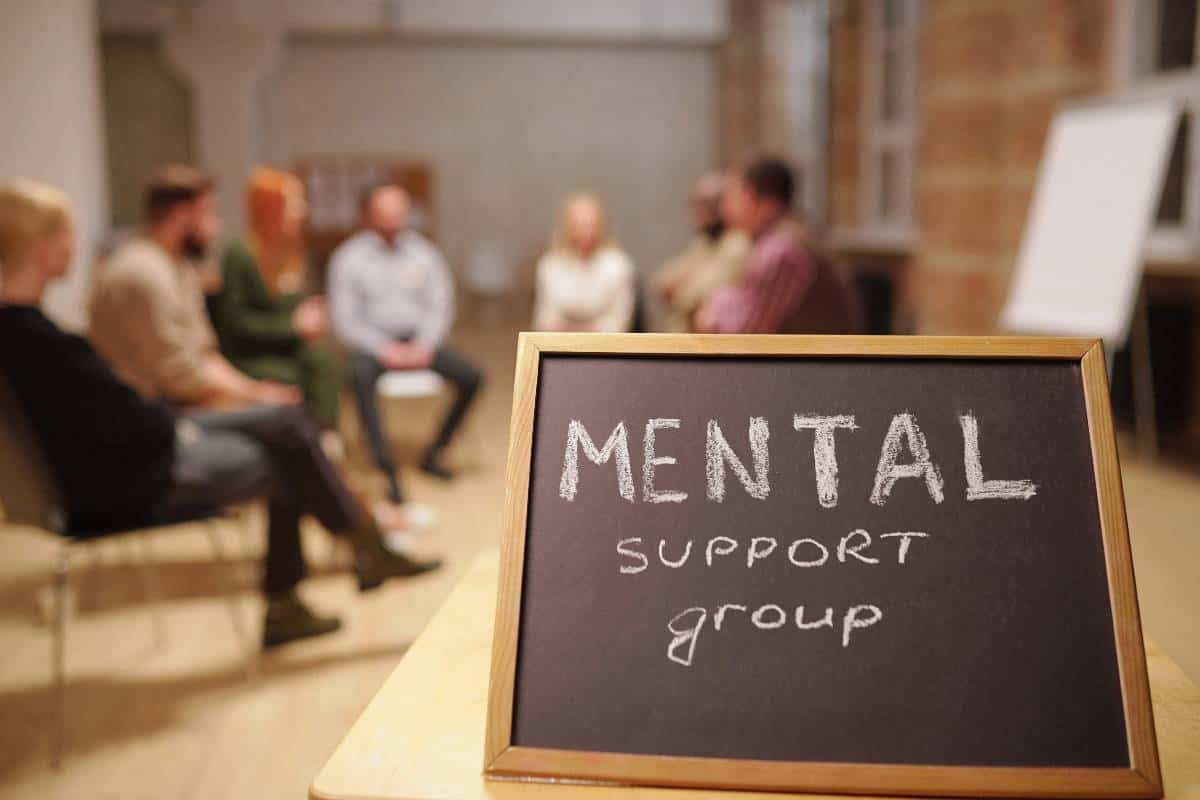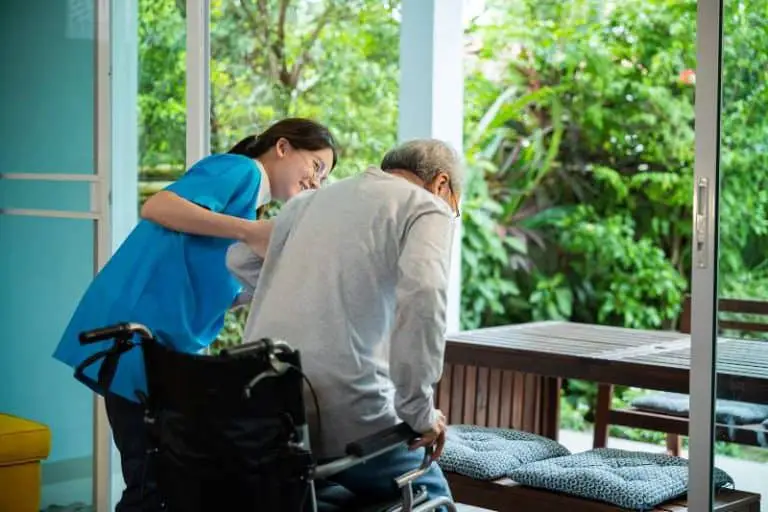The Best Mental Health Resources Thailand Expats
Relocating abroad can be an exciting adventure, but also a challenging one. In addition to practical hurdles like securing visas or finding schools, the transition can take a real toll mentally.
As an expat myself who moved from the US to Thailand over 35 years ago, I understand firsthand the unexpected emotions that can surface—from loneliness to culture shock.
While amazing experiences await, looking after your mental health and getting support when needed is just as essential.
That’s why I want to have an open and honest conversation about the unique mental health landscape facing expats here in Thailand.
Key Takeaways
- Mental health issues are common for expats in Thailand due to adjusting to a new culture and being away from the usual support systems.
- There are a variety of mental health services available ranging from counseling to support groups to psychiatric care.
- Leading hospitals in Bangkok offer dedicated psychiatric help and emergency services.
- Navigating insurance coverage, cultural stigma, and legal considerations all play a role in accessing care.
- Connecting with fellow expats and self-care are also vital for ongoing management.
Why Mental Wellbeing Matters
Let’s start by getting real about why good mental health matters just as much as physical health when living abroad.
Beyond influencing your happiness and fulfillment day-to-day, it impacts all other areas too:
- Work and career success
- Relationships with your partner, children, and others
- The ability to fully embrace the culture and lifestyle
- Financial stability and security
- Physical health and healthy behaviors
- Developing a sense of belonging and community
Unfortunately, research also clearly shows that ex-pats are at greater risk of:
- Anxiety
- Depression
- Substance abuse
- Isolation
- Relationship issues
So being proactive and informed about available mental health resources here is vital.
The good news is that there are lots of knowledgeable English-speaking providers, support groups, and services available, especially in major cities like Bangkok.
What We’ll Cover
In this complete guide to mental health care for ex-pats put together by my team at BetterLivingAsia.com, we’ll discuss:
- Common challenges faced
- The landscape of services that exist
- Top facilities and providers worth knowing about
- Considerations around insurance, costs, and stigma
- Where to turn in crises
- Tips for self-care and leveraging communities
Let’s get started!
Understanding Mental Health Challenges
While moving abroad is different for everyone, there are some common triggers underlying mental health conditions that arise for ex-pats here:
Leaving Loved Ones
Being separated from close family and friends back home means losing touch with your usual support network. This can lead to grief, anxiety about loved ones’ well-being, and just plain homesickness.
Cultural and Language Barriers
Even mundane activities like grocery shopping or making doctor appointments can feel not just frustrating but isolating if you don’t speak Thai fluently. Continually being outside your comfort zone is mentally draining.
Career Uncertainty
Uncertainty about work and financial security is stressful. Changing career paths or downshifting ambitions don’t always feel voluntary either.
Accessing Healthcare
Understanding and navigating healthcare systems abroad adds bureaucracy and logistics headaches on top of any health issues.
Just know that what you’re feeling is normal! But ignoring warning signs of poor mental health is risky regardless of what triggered them.
Research on ex-pats coping abroad uncovered alarming statistics:
- Upwards of 30% suffer from depression
- Roughly 20% experience severe anxiety
- Around 15% turn to drug or alcohol abuse
- Sadly, 13% report having suicidal thoughts
As you can see, a wide spectrum exists—from daily sadness to clinical mood disorders requiring intensive treatment.
The key is tuning into changes and getting appropriate help early, which we’ll cover next.
You’re not alone in this either. There are fantastic resources across Thailand tailored to expats’ unique needs.
Types of Mental Health Support
From counseling for couples going through big transitions together to support groups for those grieving a loved one…many options exist that can help you regain balance and joy while living here.
Here are some of the most common types:
Counseling & Psychotherapy
Counseling (sometimes called psychotherapy/talk therapy) lets you speak in full confidence about what you’re going through with a trained professional. This ranges from:
- Adjustment issues when newly arrived
- Marriage or family counseling
- Child psychology and play therapy
- Grief over losing someone back home
- Past sexual trauma or abuse resurfacing
There are lots of qualified counselors with international backgrounds—so you can find someone who just ”gets it”.
Medication & Psychiatric Help
Psychiatrists can diagnose specific clinical conditions like clinical anxiety or depression. Beyond providing therapy themselves, they can prescribe medications to help regulate brain chemistry imbalances.
Some common medications used are:
- SSRIs/antidepressants for depression
- Benzodiazepines for anxiety or panic disorders
- Stimulants for ADHD
Of course, medications affect everyone differently, which is why regular follow-ups are key.

Crisis & Emergency Assistance
Mental health crises like suicidal thinking or extreme episodes of panic call for urgent help. Consider:
- Emergency room visits – For assessment and immediate stabilization
- Inpatient hospital stays – For intensive 24/7 monitoring and treatment
- Crisis hotlines – Offering free, confidential support
Having emergency options and contingency plans is crucial given the higher rates of crises.
Support Groups
Connecting with others facing the same struggles makes a huge difference in overcoming stigma. Popular options are:
- AA/NA groups – For those coping with addiction
- Group therapy – sessions with peers for shared issues
- Online forums – Virtual spaces to exchange stories/advice
Knowing you aren’t alone in the challenging moments can be incredibly relieving.
Complementary & Alternative Therapies
Treating the mind and body together is key for expats adjusting abroad. Think:
- Yoga and meditation – For mental clarity and reducing stress
- Spa therapies – Soothing massage, reiki, and more
- Art or music therapy – Tapping into creative outlets
- Pet/equine interactions – Animal comfort and joy
Integrating these complementary therapies helps sustain daily wellness too.
Top Facilities and Providers
Now that you know the range of support that exists, let’s look at some recommended options in Thailand’s major centers.
Here are the top facilities and experts I refer ex-pats to most in Bangkok especially.
Hospital Mental Health Services
For crisis or specialized treatment, private hospitals have dedicated psychiatric offerings with English support:
- Bangkok Hospital – A 24-hour psychiatric emergency department plus outpatient care
- Bumrungrad Hospital – Specialist clinics and inpatient care
- Samitivej Hospital – Multidisciplinary teams across 3 Bangkok locations
- Camillian Hospital – Focused care with therapy and counseling
Be sure to always confirm precise provider coverage with your insurance beforehand.
International Counseling Centers
- New Counseling Service (NCS) – 20+ years helping ex-pats and locals (multiple languages offered)
- Psychological Services International (PSI) – Counseling, assessments and therapy (English focus)
- The Life Change People – Couples counseling and personal retreats
These are just a few of the renowned centers with a depth of expat experience.
Addiction Recovery & Rehab
- The Cabin – Residential rehab with centers in Bangkok and Chiang Mai
- DARA Thailand – Specialized drug and alcohol addiction treatments
- The Dawn – Detox, and counseling for long-term addicts
Unfortunately, addiction impacts many expats – but world-class help exists.
Charities and Hotlines
- Samaritans of Thailand – 24/7 confidential crisis support in multiple languages
- Operation Smile – Supporting children with facial deformities
- The Shade Tree Foundation – Shelter helping abused women and children
I’m proud to also personally support these vitally important charities through regular fundraising drives.
There are SO many caring people dedicated to helping here when you know where to look.
Insurance and Care Funding Considerations
One of the realities when moving abroad is getting savvy on healthcare plans and insurance paperwork.
Here are quick tips on navigating costs for any mental health care needed:
Confirm exactly what’s covered – Every policy is different, so double-check items like:
- A number of counseling visits included?
- Are emergency services eligible?
- Conditions excluded as pre-existing?
- Are medication percentages covered?
Reading the fine details matters immensely!
Consider premium international policies – For a greater choice of premier English-speaking providers and facilities.
Leverage payment plans if uninsured – Many providers offer flexible payment options or sliding fee scales on request. Don’t let fear of costs prevent seeking help urgently when required either.
Account for travel time for care – Those located outside major cities should consider logistics and budget extra transport/lodging accordingly. But with virtual care options expanding rapidly, location is getting easier.
The key is mapping out a contingency plan for care aligned with your insurance situation or income flow.
Connecting with Fellow Expats
Another free but invaluable outlet is plugging into local expat communities.
Here are some tips:
Join expat associations – Such as the Australian Association, Bangkok Women’s Group, or American Women’s Club. Lots of mental health-focused events were held.
Attend meetups – For interests like sports, cultural activities, or causes capturing your passion.
Participate in Facebook groups – Thai Expats Over 50 has one with over 2000 members for example.
Volunteer – Amazing connections happen helping at charities like animal rescue shelters.
Consider a mentor – Someone further into their overseas journey who can offer perspective.
At times it’s not formal treatment needed most, but just knowing you have a supportive tribe around you.
Dealing with Stigma
Even as awareness grows, cultural taboos sadly still exist around mental health. Discrimination prevents many from speaking up early and seeking help.
If stigma bothers you too, remember a few key truths:
- Needing support is nothing to feel embarrassed about. 1 in 5 people face challenges.
- Prioritizing self-care exemplifies strength – not weakness.
- Qualified professionals have heard it all before without judgment.
- Those unwilling to discuss issues reflect their limitations – not yours.
- Progress in reducing stigma starts with individuals sharing stories.
The more dialogue, the better – which is what I aim for across my writings and outreach.
You deserve to feel accepted as your true self anywhere in the world. Don’t let stigma silence or disempower you from getting the support needed to thrive abroad.
Understanding Mental Health in Thailand as an Expat
Moving to any new country brings a unique set of challenges, but perhaps none more so than Thailand. As exciting as the prospects of this tropical paradise may seem, the realities of language barriers, career shifts, financial changes, and distance from loved ones can quickly compound into serious mental health issues if not careful.
Research indicates expats have significantly higher rates of anxiety, depression, substance abuse, and suicidal ideation compared to global averages. Isolation, culture shock, grief over lost identity or purpose, and healthcare access difficulties are frequently cited factors. Know that difficulty adjusting emotionally is normal, but also that acknowledging when professional mental health support is needed is essential.
Mental Health Issues Faced by Expats in Thailand
Some of the most prevalent mental health conditions that arise for ex-pats living in Thailand include clinical depression triggered by career uncertainty or downshifted ambitions, loneliness, and homesickness especially noticeable during holidays, marital problems like intimacy struggles, and domestic violence exacerbated by financial stress or traumatic childhood issues resurfacing when removed from familiar surroundings and routines.
Additionally, the carefree beach lifestyle stereotype can disguise dangerous levels of alcohol or drug abuse expats fall into while filling social voids. Eating disorders and body dysmorphia may develop in the image-conscious expat culture as well. Any traumatic history or PTSD vulnerability can also intensify when out of one’s comfort zone.
Common Mental Health Services Available for Expats
From counseling to psychiatric care to support groups, Thailand thankfully offers quite a breadth of mental health services catering to expats’ unique needs. Leading international hospitals in metro areas tend to have dedicated psychiatric departments with English-speaking capabilities able to address severe crises or conditions needing medication.
Plentiful private counseling centers provide talk therapy spanning from marriage issues to PTSD to LGBTQ matters and more. For those struggling specifically with addiction, several premier inpatient and outpatient rehab facilities exist too.
Crisis hotlines, mental health non-profits, peer communities, and increasingly online virtual resources expand options considerably for expats. The key is knowing the language and cultural nuances needn’t be barriers preventing one from accessing quality mental healthcare here.
Reaching Out for Mental Health Emergency Assistance
Should an urgent mental health crisis such as suicidal ideation, self-harm behavior, psychosis, or another life-threatening situation arise while in Thailand, immediately proceed to the nearest reputable hospital’s emergency room for emergency psychiatric assessment and intervention.
Top facilities in Bangkok include Bumrungrad International Hospital, Samitivej Hospital, and Camillian Hospital with dedicated mental health teams on standby 24/7.
Be prepared to confirm health insurance coverage details or arrange interim payment options directly with hospital billing departments; receiving necessary stabilization care upfront takes priority over administrative tasks in dire circumstances.
Also, contact emergency hotlines like the Samaritans of Thailand for additional real-time emotional support during volatile episodes. Their confidential English crisis service can buy precious time in transit to clinical settings. However, do not wait when clear risk factors are present – visit an ER promptly.
Accessing Mental Health Treatment and Support
While Bangkok understandably garners attention for premier medical facilities and an abundance of Western providers, mental health assistance fortunately abounds nationwide for those willing to research options. No expat in Thailand should feel geography or income has doomed them to suffer silently.
An array of affordable counseling centers, psychiatry units in reputed provincial hospitals, charitable outreach programs, remote telehealth platforms, and more continue expanding healthcare access regardless of location or means.
Language differences undoubtedly compound the journey, yet quality interpretation assistance also continually improves thanks to advocacy. Bottom line – help exists across Thailand if determined to seek it out.
Finding Counseling Centers in Bangkok
For expats situated in metro Bangkok suffering from mild to moderate anxiety, depression, grief, trauma, relationship struggles, or any other emotional turbulence short of an urgent crisis, reputable counseling centers provide accessible talk therapy support in English, with many clinicians boasting backgrounds equally attuned to Western psyche perspectives and nuances.
Recommended facilities include New Counseling Service (NCS), Psychological Services International (PSI), and Neil & Associates Counseling all maintaining decades-long track records catering to resident expats. Most accept private insurance plans or offer self-pay options on sliding scales too. Check credentials thoroughly when selecting and don’t hesitate to query therapists on compatible therapeutic models. You want a good personality fit too.
Utilizing Hotlines for Immediate Assistance
While counseling makes an excellent preventative measure, having emergency mental health hotline contacts handy is wise nonetheless before situations escalate dangerously.
For expats experiencing any form of acute psychosis, mania episodes, suicidal urges, or self-injury compulsion, call emergency services like the Samaritans of Thailand at 02-113-6789 immediately to access free, confidential English crisis support anytime 24/7.
Volunteers specially trained in suicide risk de-escalation can help contain the initial outburst, provide compassionate listening ears, suggest coping strategies, and direct follow-up clinical care options urgently if needed. Don’t delay obtaining quick stabilization assistance via hotlines like Samaritans while awaiting formal hospital intakes or appointments. Every minute counts in preserving safety in mental health crises.
Exploring Psychotherapy and Psychologists in Thailand
Should your circumstances or preferences lean towards seeking private one-on-one psychotherapy instead through licensed clinical psychologists (possessing PhDs versus master’s level therapists), ample qualified English-speaking practitioners with reputable expat expertise similarly exist, especially concentrated around Bangkok.
For example, Harley Therapy clinical director Sheri Jacobson maintains a roster of five British-trained psychologists supported by counselors and coaches also conversant in handling common expat mental health issues like adjustment disorders, vocational dissatisfaction, or dependency challenges.
Alternatively, international hospital outpatient psychiatric departments connect ex-pats to multi-disciplinary teams including psychologists and psychiatrists for comprehensive care. When navigating optimal talk therapy paths, verify medical insurance coverage and terminology differences from country to country on these two roles.

FAQs
What should I do in a mental health crisis while in Thailand?
If severely depressed, manic, panicking, or having thoughts of self-harm, go directly to the emergency room at an international hospital. Ask to see the psychiatrist on duty for immediate assessment and intervention regardless of insurance status or ability to pay at that moment. Your health comes first.
Will my insurance plan cover mental health treatment and medication?
Every policy is different, so verify specifics. Many group plans exclude pre-existing conditions. Individual policies may offer mental health coverage but with limitations on number of visits annually. Expect most plans to have a waiting period before psychiatric services activate. Always confirm coverage details in writing with your insurer before committing to any higher-cost treatment program.
How can I continue counseling if I move to a rural area of Thailand with few specialist providers?
Virtual counseling via secure video calls has expanded drastically, breaking down geographic barriers. Research providers offer remote sessions, especially across time zones so you can potentially connect with therapists back home. Be mindful of any time lags or tech issues of course. However online counseling opens doors for care from afar.
What options for help exist if I’m struggling with alcoholism or drug addiction?
Fortunately, Thailand has outstanding rehab centers focusing on recovery. Look into The Cabin’s locations in Chiang Mai and Bangkok for premium residential treatment or outpatient programs. Highly skilled in addressing denial and commitment issues around early recovery too when that extra motivation is still building. As well consider opening up to local 12-step meetings through groups like AA with thriving expat participation. You don’t have to walk the sobriety journey alone.
I hope these give you confidence that quality care is truly accessible across Thailand plus insights on navigating the next steps. Please reach out for any other questions!
How quickly can I receive mental health treatment in Thailand?
A: In some cases, mental health treatment can be provided within 24 hours in Thailand, especially in emergencies. The availability of treatment may vary based on the severity of the condition and the resources in the area.
What are the best resources for mental health support in Thailand?
A: Some of the best resources for mental health support in Thailand include reputable hospitals, mental health professionals, support groups, and international health insurance providers like Pacific Prime Thailand. It’s important to explore various options to find the support that works best for you.
The key takeaway I want you to remember is that prioritizing your mental health is just as essential as physical health when living abroad – no matter how exotic and dreamy life may look on the surface through social media at times!
Don’t hesitate to turn to the fantastic local resources available across Thailand if you’re struggling with emotions around adjusting, relationships, substance use, trauma, or any life challenge.
Qualified multilingual providers with years of expat experience stand eager to help across leading hospitals, clinics, and charities – especially in metro areas.
Beyond formal treatment options, consider plugging into thriving expat communities for social support, inspiration, and reassurance that you’re not alone.
Finally, work to reduce any shame or stigma still unfairly attached to mental health care. Needing help strengthening resilience or overcoming setbacks does NOT make you weak! It demonstrates courage, self-awareness, and commitment to your well-being – all noble qualities.
You deserve to feel happy, balanced, and fulfilled living abroad, which is possible with the right holistic support.
I’m proud of this little slice of paradise we call home here in Thailand – but know firsthand the ups and downs of overseas life too. So if any part of my journey resonates or you need a listening ear, please reach out!
Wishing everyone contentment and care as you write your own Asia adventure story.
Conclusion
Thanks for taking the time to read this complete guide on accessing mental health care as an expat in Thailand curated by my team.
We aimed to empower you with knowledge and break down stigma barriers preventing too many from seeking support readily enough when they need it.
Remember – prioritizing emotional wellness isn’t selfish, it’s vital for your overall health and happiness abroad!
If you found this guide helpful subscribe to our newsletter, or contact us if you have any questions.
I’m always glad to steer fellow expats towards trusted resources based on my 35+ years living happily here through both good seasons and turbulent ones too.
Hope to hear from you soon and discuss more!






